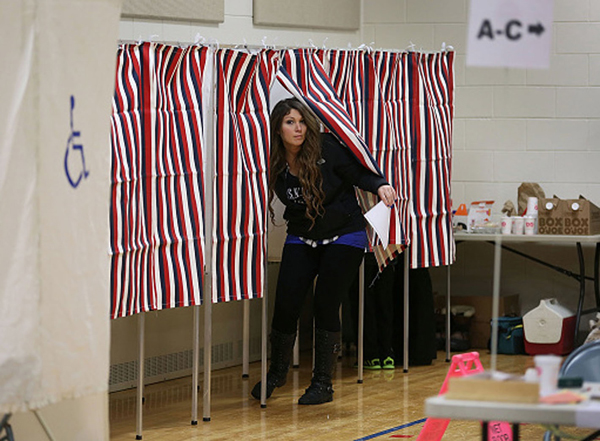- La Feria Community Holds Succesful Business Mixer Event
- Little Nashville to Take Place in Downtown Mercedes
- Lions Basketball Captures District Gold
- La Feria ISD Students Compete in Regional Chess Tournament
- Lions End First Half of 32-4A on a High Note
- La Feria ISD Held Another Successful Parent Conference
- Strong Appearance for Lions at Hidalgo Power Meet
- LFECHS Students Get to Meet Local Actress
- Students Participate in Marine Biology Camp
- Two LFECHS Students Qualify for All-State Band
SCOTUS Ruling Blocks Redraw of Texas Congressional Districts
- Updated: September 22, 2017

A U.S. Supreme Court ruling this week means Texas voters must use the Congressional district boundaries drawn up the Republican legislators in 2012. Photo: Raedle/GettyImages
by Mark Richardson
AUSTIN, Texas — A U.S. Supreme Court decision has put a temporary hold on two lower-court rulings ordering Texas to draw new Congressional districts by the 2018 elections.
In a 5-4 decision, the court stayed rulings that found that the Texas Legislature had violated the federal Voting Rights Act by drawing districts that discriminated against Mexican-American and African-American voters. Matt Angle, director of the Lone Star Project, said the issue still is alive in the courts, but this week’s ruling will likely postpone the outcome.
“The Supreme Court didn’t make any judgment on the substance of the complaint,” Angle said. “They simply stopped the redraw proceedings until they can fully review the rulings by the district court.”
A federal district judge ruled earlier this year that the districts – the 35th running from San Antonio to Austin and the 27th near Corpus Christi – were deliberately drawn to discriminate against people of color, and ordered them redrawn for the 2018 elections. Texas Republicans sought to stay that ruling, claiming the districts were fair and legal.
It is expected that the Supreme Court eventually will rule on the validity of the districts, but that decision could be months away.
State Representative Mary Gonzalez of El Paso, vice-chair of the Mexican American Legislative Caucus – a plaintiff in the redistricting case – said this ruling means Texas voters will have to wait for justice.
“These maps were found to be intentionally discriminatory, so for years now, voters haven’t had access to an equal and fair election system,” Gonzales said. “And so, we’re just really eager to right this wrong so that voters can have a fair democratic process.”
Angle said redrawing the map into fair districts would not automatically give the Democrats a majority, but it would end overt discrimination against minority voters. He added that if the Supreme Court finds illegal gerrymandering by the GOP, it could order Texas to again pre-clear all its election rules with the U.S. Department of Justice.


